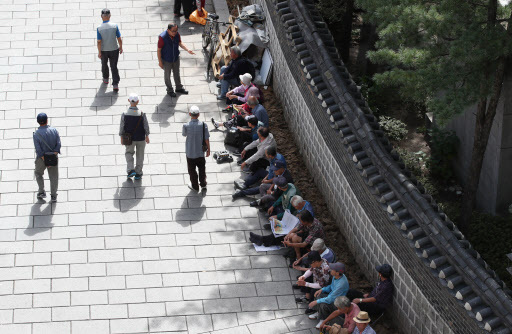Seoul is likely to become a “super-aged” city in 2026, according to data released by the Seoul Metropolitan Government.

Seoul became an “aged” city last year against the backdrop of a low birthrate and longer life expectancy, with more than 14 percent of its population being 65 or older.
South Korea’s capital is expected to become a super-aged city in 2026 at this rate, where more than 1 in 5 of the population is 65 years old or above.

The number of those who are 65 or older was 1.4 million as of last year, making up 14.4 percent of the city’s total population of 10 million.
On the other hand, the number of foreign residents in the city has increased, with 283,984 people living in the metropolitan city last year, a sixfold increase from some 45,000 in 1995.
Seoul is expected to lose its status as a megacity, with its total population to sink below 10 million between the end of this year and the first half of next year, the city said.
A major reason behind the population decrease is that Seoul residents have moved out of the capital, mainly to settle in the surrounding Gyeonggi Province. In 2018, some 460,000 people moved to Seoul and 570,000 moved out.
According to a survey of 1,000 people living in the capital, the biggest portion of respondents said the population fall would not have any impact on their lives (39.6 percent), followed by those who said it would be negative (37.9 percent) and positive (22.5 percent).
The respondents said the population decline would positively affect the natural environment (44.7 percent) and the housing situation (43.1 percent), but it would negatively influence society (60.9 percent) and welfare (59.4 percent).
Korea saw a decline in the working age population for the first time last year, officially becoming an aged society.
By Ock Hyun-ju (laeticia.ock@heraldcorp.com)
-
Articles by Ock Hyun-ju




















